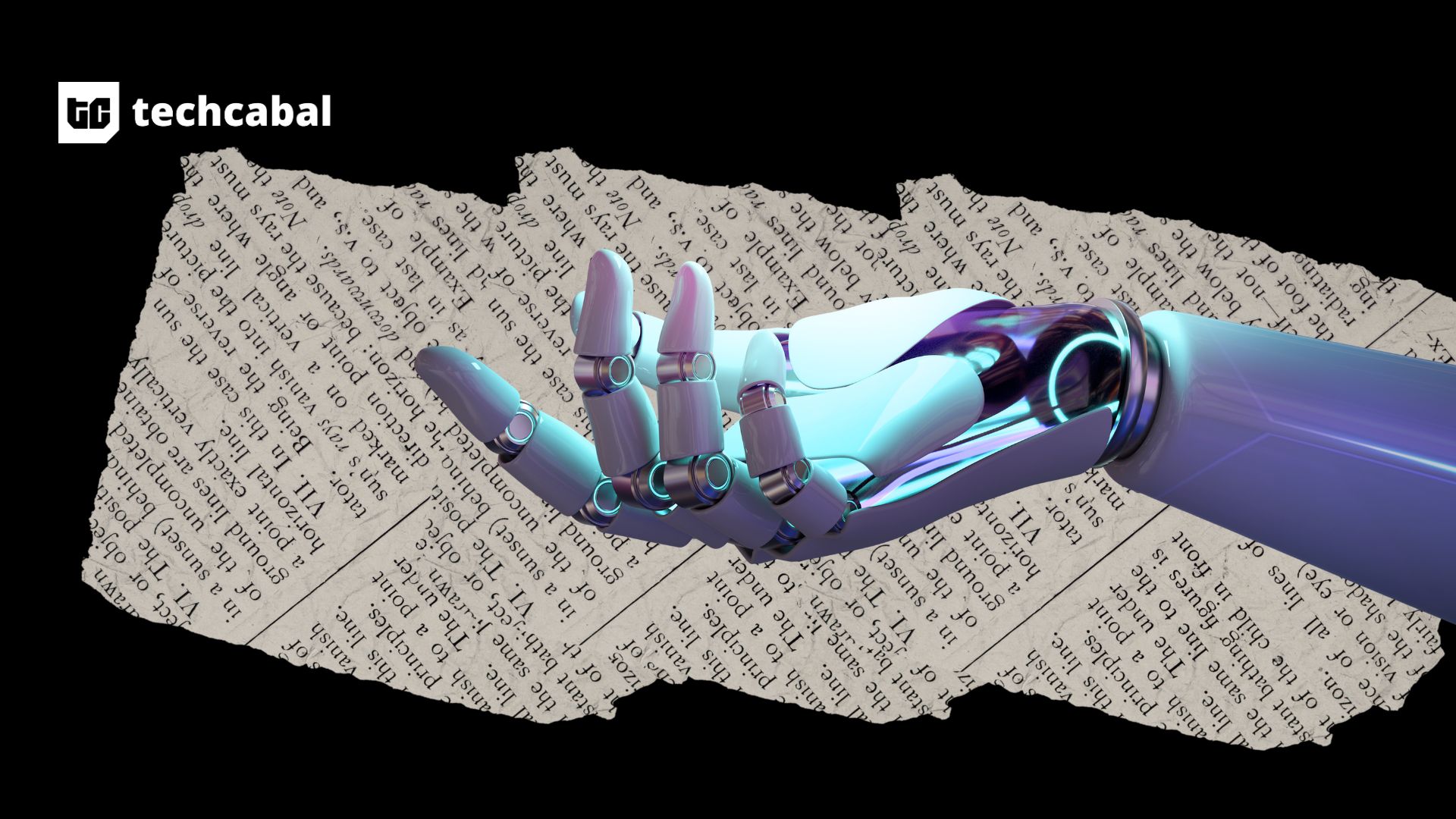As the demand for customised learning grows across Africa, Edtech startups in Africa are keen on joining the AI bandwagon. While some feel there needs to be more time for incorporating AI into learning, others think there’s no better time than now.
There is a new revolution in town—Artificial Intelligence (AI)—and edtech startups in Africa are not missing out on the wave. Edtech startups in Africa are positioning themselves to leverage this transformative technology to revolutionise education and drive positive change across the continent. With the growing demand for personalised learning and remote education, these innovative companies are increasingly exploring the potential of AI to enhance their offerings.
The adoption of AI in education has the potential to revolutionise the way students learn, access educational resources, and interact with educators. African edtech startups are aware of the transformative potential of AI and are getting ready to embrace this technology to take their businesses to the next level.
To the CEO of AltSchool Africa, Adewale Yusuf, there has never been a better time for Africa to get involved in a cutting-edge solution. “I think that for the first time, we might have some chances to be a part of some innovative solutions. Some of these things might start from Africa and not just us participating in them,” he said on a call with TechCabal.
Vahid Pourahmary, VP of Engineering at uLesson, a Nigerian edtech platform, believes that, AI is just an enabler—a means to an end in itself. “If you think about technology, technology has always been a part of education even If you go back to the time when we had an abacus to do maths,” he said.
“Technology has always been in some sort or some form part of education, whether you wanted it or not. During the pandemic, whether you wanted it or not, you had to start teaching online. When the calculators were invented, whether you wanted it or not, you had to start introducing calculators in the way you are teaching. Every education organisation in the world has somehow used technology to teach,” he added.
Where does Africa’s edtech ecosystem stand in this revolution?
“In the edtech ecosystem, everybody is asking and answering the million-dollar question ‘How are you going to implement AI into your existing infrastructure?” says Pourahmary. He believes that the approach to answering this question is a matter of “when” rather than “how”. He states that education is at the core of uLesson.
“At the core, education is our mantra, we use technology to enable that, to make it faster. AI is just one step into that process. Technology is at the core of how we deliver educational content. It might be right now with AI, we don’t know what it is going to be in a few years from now.” Pourahmary said. “We at uLesson want to make sure our learners learn, whether we do it with AI or whether we do it without it. It is just part of the technology that has always come and has been used in different ways.”
Oluwabunmi Borokinni, Founder, TechChild Africa, feels AI will play a redefining role in access to education in Africa. She believes AI-powered platforms can provide distance learning opportunities for students in remote areas with limited traditional educational resources. “In Africa, we have a lot of areas where they only have access to traditional educational resources. To be able to help that, we need AI-powered platforms that can provide distance learning opportunities for them,” she said.
What pain points in Africa’s edtech is AI addressing?
Pourahmary believes that it is hard to tell exactly what pain points AI will address in Africa. “Right now, people need to wait for the dust to settle for us to know what we can do with AI. I think it is hard for us to tell exactly what AI can do for us in education unless we start trying. It’s a little too early, I think we need to wait a bit more,” he told TechCabal.
Borokinni also believes that AI will allow for accessibility on different fronts for students with disabilities. “There are a lot of AI-powered text-to-speech systems, where students who are blind can easily listen to a lecturer or to a course that is originally in text,” she said. “AI has been able to help prescribe or describe what a slow learner can do to be able to pick up in class, or the kind of activities slow learners can participate in to help in improving their learning abilities.”
Yusuf believes that “real learning” will happen with the entrance of AI and also believes that AI will expose the weaknesses of learning that have been in the past. “For a very long time, learning has always been about ‘la cram, la pour’, now we are seeing first-hand that a lot of things you want to cram are going to be automated by AI. Real learning will happen with the entrance of AI,” he added.
What is the role of AI in the future of edtech in Africa?
According to Yusuf, Africa’s edtech ecosystem is at the precipice of AI adoption. “The future is the future, and we are living right in the middle of it and this demands that everybody wakes up to the reality of changed learning. You have to question yourself, how can we integrate some of these things into what people are learning? We live in a new world where people get to learn the concept of AI and how it will impact their world.”
Borokinni believes another role AI can play in the future of edtech in Africa is language. “In Africa, we have diverse languages, so we might want to look at incorporating AI into our language learning in Africa to promote our cultural heritage. I once started a neural learning where we have an AI system that can convert English to different languages in Africa.” She also believes that AI can also be used to provide teachers support, specific training for teachers and help with content creation.
Pourahmary thinks that the challenge will be for edtech startups, schools and universities to rethink what they are trying to do using technology rather than bringing technology into what they do. “If you look at the companies that have been able to breakthrough, it is the one that question the status quo, and they believe it can be done in a different way,” he said.
“uLesson for example rethought education while using technology as an enabler. How are we going to look at technology and do the things that we can’t do, I think it can do a lot for us, it can change the way that we learn, and it can reduce the challenges that we have. I think organisations need to rethink, how to question the status quo of the normal way of teaching using technology.”
Edtech Startups are staying ahead of the curve
Pourahmary maintained that uLesson had taken active steps to stay ahead of the curve from the get-go. “Every step we take as an organisation is to stay ahead of the curve. If we were not ahead of the curve always, we would not be where we are as an organisation. Every single thing that we do as an organisation is trying to stay one step ahead of the curve. We have rethought how education should be accessed and we want everybody to have access to education.”
Yusuf also maintains that Altschool Africa has always been ahead of the curve. “We’ve always been an innovative and technology-first company. we are constantly asking ourselves is ‘what is the future like?’ ‘How can we always be ahead of the curve?’ And ‘Can we leverage on the curve even for Africa?’” he said.
Yusuf hinted that his team are currently working on something that will help people understand the concept of AI better. “Everyone is planning on integrating AI into their educational infrastructure, we are also doing the same at Altschool. These are some things that are private for now, but we’ve been having conversations around it,” he concluded.
Traditional Educational systems are joining the wagon.
Edtech startups are not the only ones being washed up by the new wave of Artificial Intelligence, traditional educational systems are also throwing themselves into the deep waters of Artificial Intelligence as they recognise the need to embrace this transformative technology.
Dr Azubuike Ezenwoke, a senior lecturer at the Department of Computer and information sciences, Covenant University, is of the view that AI can help bolster the curriculum in most Nigerian universities. “AI can seamlessly integrate the peculiarities and uniqueness of each institution, incorporate real-time industry knowledge, skills, and competencies, integrate what each university is currently running, incorporate the government’s national interest, and suggest a holistic curriculum that can be customized to each institution, program, and context,” he says.
Ezenwoke also believes that AI tools can help strengthen research outputs by accelerating the research process. Ezenwoke told TechCabal that AI could help in metric-based admission screening for students, where students are judged on parameters asides from the WAEC and JAMB scores for admission into the universities. According to him, AI could play a crucial role in supporting administrators and educators in delivering a more qualitative and personalised education experience to students. He, however, believes there would be a need for increased training of teachers and tutors to fully administer the powers of the new technology.



















